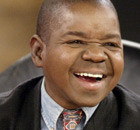China
Immaturity stops China's consecutive run for Corbillon
(Xinhua)
Updated: 2010-05-31 09:21
 |
Large Medium Small |
MOSCOW - The legendary Chinese women's table tennis team, which boasts of lifting Corbillon Cup eight times in a row, failed to take its ninth run again, being stunned by Singapore 3-1 here on Sunday in the final of the 50th worlds.
"We bring many young talents to Moscow. None of them has experience in playing in a tense final," said China coach Shi Zhihao after the duel. "In a sense, we lost to ourselves, to the immaturity. This is a lesson the younsters must take in their career life."
Dating back to 1991, the then Chinese women's team spearheaded by Deng Yaping, Qiao Hong and Gao Jun, all young players at that time, also pursued a ninth consecutive run for Corbillon Cup in the 41st worlds in Japan. Unfortunately, they were beaten in the final by the then United Team of DPR Korea and South Korea.
Deng lost the first match and Gao was upset twice. Both of them played the final for the first time in 1991.
It is a jinx that China could snatch Corbillion Cup eight times in straight at most. And immaturity always plays the leading role in China's waterloo.
Back in Moscow today, China fielded three new bloods including two teenagers Ding Ning and Liu Shiwen. Both Ding and Liu had never played in the final of worlds before. Although the duo kept a clean sweep record against their Singaporean opponents Feng Tianwei and Wang Yuegu, they had to have the record rewritten today.
At the beginning, Ding did quite well in the first duel against Feng, winning the first two sets and leading 8-3 in the third. But Feng changed her tactics then. Ding could not get used to the change and collapsed, losing three sets in a row and conceding the first crucial point to Singapore.
Zhou Shusen, former coach of the Beijing women's team but began to direct the Singaporean team this year, said after the final, "Compared to the retired Chinese stars Wang Nan and Zhang Yining, the Chinese players in today's final are not weak in skills but in mental strength and experience."
"At several crucial moments, they played in an amateur way," Zhou said."For instance, Ding played in a conservative way when she was so close to a win, which gave Feng a chance to rally."
"Frankly speaking, if we lost the first duel, we would lose the final today," he added.
Ironically, all the three Singaporean players in the final were former Chinese players, both Feng and Wang from the Chinese national team, and Sun Beibei from a provincial team. Coach Zhou had ever trained Zhang Yining and Ding Ning.
Feng Tianwei, the key Singaporean player today who beat Ding Ning and Liu Shiwen, told reporters,"In the first match against Ding, when I almost lost, I played in an unusual way. As it worked, I could feel that Ding became nervous and I knew I had a chance to overturn."
Analysts don't believe that the Chinese women's team, a traditional powerhouse in the table tennis world, will slip downward since today's failure. On the contrary, the youngsters are able to learn from the loss and steer the team to a new high, just like what Deng Yaping and Qiao Hong did after the 1991 collapse.
Shi Zhihao said,"We will take a revenge at the Guangzhou Asian Games this autumn."







